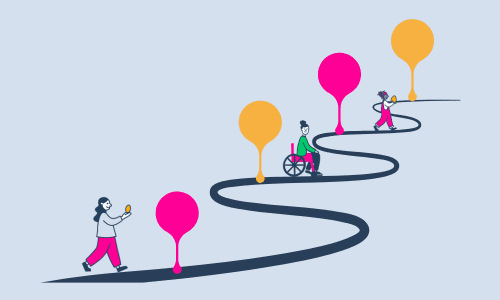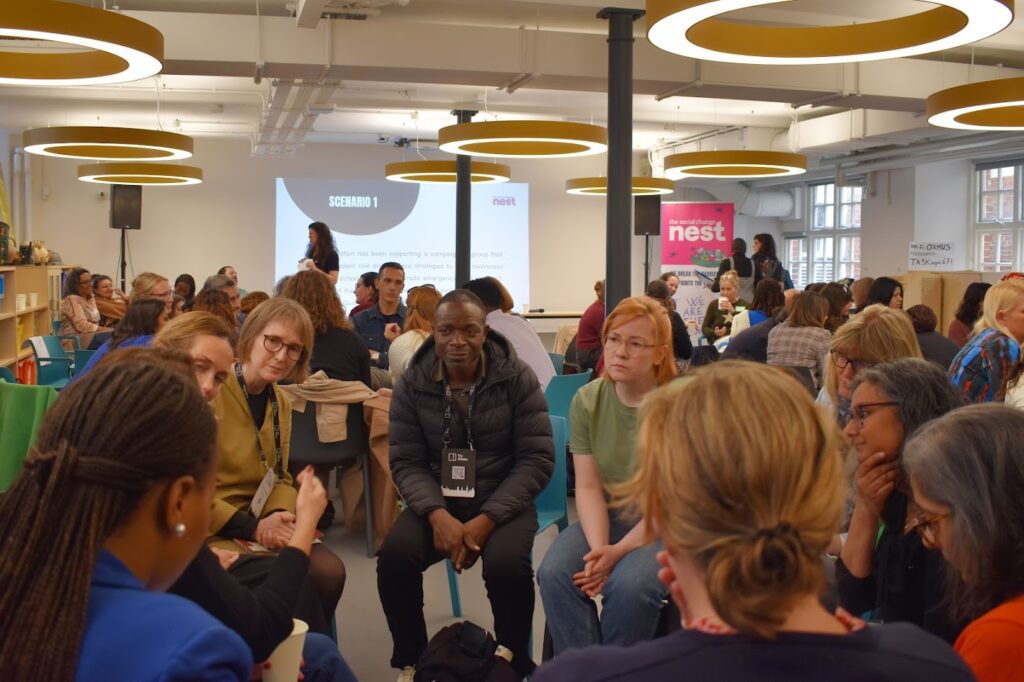The cost of living crisis – What’s happening in communities?
Blog originally published via The Social Change Agency.
Written by Head of Programmes, Eda Tajuddin.
There’s no way the impact of the cost of living crisis can be fully understood, especially not in one blog. It has managed to touch everything and it’s having wide knock-on effects that are hard to fully wrap our heads around – even last week, The Independent reported a rise in people using Pet Food Banks or giving up their pets all together.
Throughout the crisis we’ve been talking to our groups in The Social Change Nest and one thing is clear: if we want to get through this without leaving anyone behind, we need to support grassroots groups. They are closest to the crisis because they are closest to their communities (they are their communities). They are working collaboratively to respond to the needs of their communities but they’re feeling the impact of the rising cost of living financially, emotionally, physically – in all the ways.
The need is high… and we mean, really high
As one group said, the situation right now is ‘grim’ (Trans Aid Cymru). All the groups we work with through The Social Change Nest have seen a significant increase in demand. Not only are they seeing the people they normally help need more support, but they’re seeing new groups of people reach out to them. They are being approached by ‘a lot of people who have not previously been in this situation’ (Oxford Mutual Aid).
That means families and households who have income – people who are ‘usually insulated from the problem’ – are now struggling and have nowhere else to go (Elswick Mutual Aid). And this is what makes mutual aid groups unique – they function on trust and solidarity, not charity. So that means no eligibility criteria – if you need help, they’ll give it.
But there’s also less to give
At the same time, groups are having to cope with less of everything. Less donations, less volunteers, less value for money on key supplies. For one group, York Anti-Racist Collective, this has meant they’ve been unable to carry out activities such as running creative workshops that aim to improve mental health in their community, when people arguably need it the most. The group is struggling to find funding and whereas previously their team of volunteers would have covered the cost themselves, they’re no longer able to.
Similarly, several groups have noticed that they have less volunteers because ‘everyone is hard pressed for time and money’ (Hastings HEART). Nunhead Knocks has been providing solidarity funds, where the community gives into a pot and those who need it can take what they need to cover food, heating and other essentials with no questions asked. The group distributed £6,980 in January alone, but fundraising is getting harder and harder. And they aren’t the only ones worried about what will happen when the money runs out.
People are having to make difficult decisions
On a household level, people are having to choose between heating and eating, or using the internet (it seems the cost of living crisis is exacerbating the digital divide). Other families are having to choose which of their children gets to eat.
Working on the frontline in communities where these difficult decisions have become part of the everyday is taking a toll on the mental health of grassroots organisers. While many groups we’ve spoken to recognise the need to safeguard the mental health of their teams, this means saying no to those who need urgent help, which has its own psychological impact. And although groups are increasingly signposting where they can, they acknowledge that everyone is stretched. If you would like to help us support our groups’ wellbeing, you can also donate to our Collective Leadership Wellbeing Fund.
It’s harder to focus on the big picture stuff
Now that groups are in survival mode more than ever, their energies are pulled from some of their longer-term goals, such as how to address the root causes of the social issues they care about. Essentially, the cost of living crisis is taking people away from making systemic change. How can you build momentum around addressing climate change when your community is hungry or desperate for heating?
How you can help
Despite all this, grassroots groups continue to power on. They are helping their communities with food, money, warm spaces, essentials – mostly on a voluntary basis. It is incredible how much they’re able to do, especially when they’re given the resources they need. We’ve always known this and last year we launched the Mutual Aid Fund in collaboration with Changing Ideas and with additional support from Disrupt Foundation. The Fund gave out grants of up to £5,000 to mutual aid groups. In case you missed it, our last blog showed you just how much they’ve been able to achieve with these small grants.
Want to support grassroots groups? If you’re an individual you can donate to any of our amazing groups here. If you’re a funder, email us at hello@thesocialchangenest.org.
A big thank you to all the groups who took time to talk to us – Angels Breakfast and Afterschool Club, BCI for RSI & Others, Elswick Mutual Aid, Hastings HEART, Nunhead Knocks, Oxford Mutual Aid, Trans Aid Cymru, Women on Bikes, York Anti-Racist Collective, Zenoch Community Centre.
- Blogs

